Enlargement Process is not Frozen but Freezing
Adelina Marini, November 20, 2015
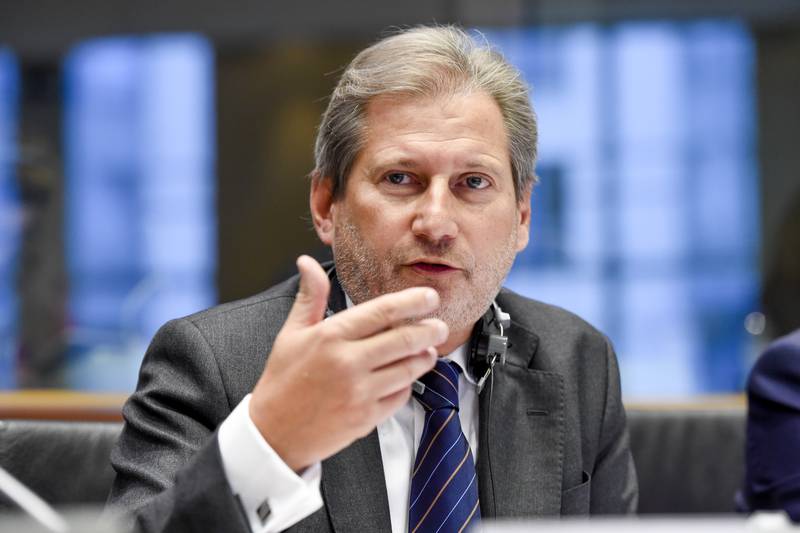 At the time around the formation of the new European Commission there was constant talk that enlargement was going to be frozen. The reason being that at the time of his election President Jean-Claude Juncker stated that by the end of the Commission’s term (2019) there would be no new expansion of the Union. This is why there is no enlargement commissioner anymore, but rather an Enlargement Negotiations one. This is the Austrian Johannes Hahn (EPP), according to whom not a single candidate country will be ready for accession by the year 2019 due to the too deep changes required of them. Not a single one of the problems can be solved within five years, thinks Mr Hahn. This is so because the enlargement process has in fact frozen a long time ago. If you look at the candidate countries’ progress reports of the last five years you will see that they do not differ very much. Every year there are the same conclusions.
At the time around the formation of the new European Commission there was constant talk that enlargement was going to be frozen. The reason being that at the time of his election President Jean-Claude Juncker stated that by the end of the Commission’s term (2019) there would be no new expansion of the Union. This is why there is no enlargement commissioner anymore, but rather an Enlargement Negotiations one. This is the Austrian Johannes Hahn (EPP), according to whom not a single candidate country will be ready for accession by the year 2019 due to the too deep changes required of them. Not a single one of the problems can be solved within five years, thinks Mr Hahn. This is so because the enlargement process has in fact frozen a long time ago. If you look at the candidate countries’ progress reports of the last five years you will see that they do not differ very much. Every year there are the same conclusions.
Freezing is not from the Brussels, but rather from the Western Balkan end of the process, which, however, does not free Brussels from its responsibility to keep the fire going in this more and more difficult relationship. The Commission has tried over the last few years to pull the process out of the bog, alas to no avail. The first noticeable change to come from the unpleasant surprise that Bulgaria and Romania’s membership brought was reversing the order of negotiations. They now start with the most difficult chapters – 23 and 24, which actually cover the most important part of transition from a totalitarian system to a community, whose values are democracy, rule of law, and human rights – a change of mentality. Montenegro is a pioneer in this approach and now all states are starting their negotiations with these exact chapters. The new approach has rooted so deep that if negotiations do not start with chapters 23 and 24 nobody considers them started.
After the EU accepted Croatia in 2013, it being in the middle of a heavy economic recession, the EC changed its approach again by introducing the European semester for candidate countries. Much more attention is being paid now to the media situation in candidate countries, but on this subject it is too early to say there is a change in approach. The previous Commission attempted to “un-freeze” the situation with difficult countries like Bosnia and Herzegovina, Macedonia, and Turkey, alas with little success. Former enlargement Commissioner Štefan Füle (Czech Republic, Socialists and Democrats) initiated dialogues at high levels, which in fact substituted a negotiation process, with the understanding, of course, that this is no substitution. The aim was to somehow circumvent the veto levied on negotiations with Macedonia and Turkey, and, in the case of Bosnia and Herzegovina, pushing political and ethnic powers in the state towards working in the interest of European integration. The problem with this approach is that it was not taken seriously in the countries mentioned, neither did it receive strong support from EU member States.
New Commission, new approach?
In an attempt to dissipate the obviously harmful PR effect that Juncker’s statement on enlargement had, the EC promised to be using this period to prepare membership candidates the best it can. This created expectations for sizable changes in approach. Thus, this year’s reports and the enlargement strategy were some of the most expected events in the EU. This, too, was overshadowed by a badly played-out situation. The EC decided to postpone the publishing of the reports by a month because of elections in Turkey, using arguments that rather looked like picking a quarrel with media, rather than a well thought-out strategy. EC spokespeople answered the daily questions of correspondents in Brussels saying President Juncker was looking for the best possible media moment.
After a long wait the reports finally got presented to the Foreign Affairs Committee of the European Parliament at first, same as was done last year. Many MEPs complained about the very short time they had to get familiar with dozens of pages of reports. They said they received the reports the very evening before the hearing, which commenced at nine am on November 10th. Many of the committee members, who made statements, were outraged by the reasons for the delay, with British MEP Richard Howitt (Socialists and Democrats) stressing that there are always going to be elections somewhere.
At the background of a totally stalled process, further hobbled by geopolitical hindrances, it was expected that the strategy will serve as some direction, if not an answer to the largest challenges. The strategy, however, only offers cosmetic changes and nothing in-depth. The problem is not just in the lack of ideas by the European Commission, but also in the fact that ruling elites in candidate states have no interest in the changes requested from them. Moreover, they have a media monopoly on popular opinion, further hindering the Commission in its attempt to present its point of view at problems and their solutions.
The EC will no longer present enlargement strategies every year as it did so far, but rather come out with an overall strategy for the duration of its term. This approach has two shortcomings. The first one is that by presenting annual strategies the EC was able to quickly shift the focus with the current situation. For example, last year the main priority was reform of public administration, whereas before that the focus was on the judiciary and rule of law. The second shortcoming is that there is practically no strategy at all. What the EC is proposing is a reminder of the most important things that it is not going to back away from – rule of law, democracy, political, economic, and societal changes, freedom of expression, and the rest of the elements of the European value and political systems. The rest of the document presents an analysis of the current situation as a whole and later on a state-by-state basis.
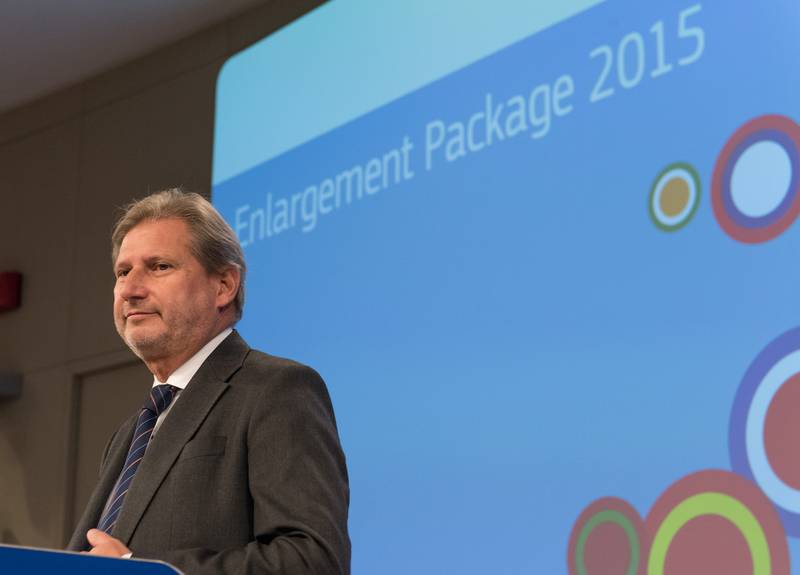 To the EU there is no change in the view that enlargement policy is an investment in peace, security, and stability in Europe and that it presents further economic and trade possibilities. There is nothing offered, however, to counterbalance the strong geopolitical pressure, which led for a moment to making relations with Russia a prerequisite to opening negotiations (especially for Serbia). The painfully known “transformative effect” is being recalled. This, however, has less and less value, especially today, when the EU and its surroundings, including states in the enlargement process, are facing heavy challenges to peace, stability, and prosperity. The refugee crisis is mentioned in the strategy, but it does not go beyond pointing out the difficulties, faced by states along the Western Balkans route. There is no suggestion of a more active participation of these states in the decision-making processes of the EU, particularly now, when more and more countries are closing off their borders one after the other.
To the EU there is no change in the view that enlargement policy is an investment in peace, security, and stability in Europe and that it presents further economic and trade possibilities. There is nothing offered, however, to counterbalance the strong geopolitical pressure, which led for a moment to making relations with Russia a prerequisite to opening negotiations (especially for Serbia). The painfully known “transformative effect” is being recalled. This, however, has less and less value, especially today, when the EU and its surroundings, including states in the enlargement process, are facing heavy challenges to peace, stability, and prosperity. The refugee crisis is mentioned in the strategy, but it does not go beyond pointing out the difficulties, faced by states along the Western Balkans route. There is no suggestion of a more active participation of these states in the decision-making processes of the EU, particularly now, when more and more countries are closing off their borders one after the other.
The transformative effect of enlargement is already highly tarnished by the experience with several member states of the EU, which are manifesting a return to many of the problems that candidates have, especially connected to media environment and rule of law. For the first time this year Commissioner Hahn admitted that there are problems with media within the EU itself as well. However, he did not go far enough to name the member states that have such problems or the measures the EC intends to take in this regard, after it became clear that the Council has no will to work on the common mechanism for protection of the rule of law.
As in previous years, the contents of the candidate states’ progress reports are relative to a large degree for member states as well. This throws a shadow of doubt over the longevity of the transformative effect of enlargement. The Juncker Commission’s strategy reminds that “Enlargement can only be of benefit to the EU and to partner countries if there is genuine, sustainable reform”. Only there is no answer provided to the question “How?", while it is only too obvious that the current model gives no beneficial results, let alone sustainable.
The new moment in this year’s reports is that problems are called by their real names and very specific recommendations are extended. What is missing, however, is what will happen if these recommendations are not followed. The answer implied, that this leads to a lack of progress towards the EU, is not enough. A standstill in enlargement, as experience shows, is not a solution. Just the opposite, it is a prerequisite for future problems, as was demonstrated by the crises in Bosnia and Herzegovina, Macedonia, Montenegro, and also Turkey. The strategy offers no answer to the question how it will solve the problem with the standstill. Moreover, it offers no answer to another extremely important question, posed during the reports’ presentation to the Foreign Affairs committee on November 10th by the Green MEP Rebecca Harms (Germany) – what are we to do with the growing scepticism in candidate countries?
The overall impression from the multi-year strategy of the EC on enlargement is that it is too inert and superficial. Not only does it not answer the most important questions, but it does not even pose them. And the contents of the progress reports by state shows there is very limited, if any, progress on the only too familiar issues. This controversy is loaded into the text of the strategy itself: “The longer-term nature of the challenges faced by the enlargement countries underlines the need to reaffirm the strong focus on the principle of 'fundamentals first' in the accession process. Progress is being made, particularly with the introduction of legislation and establishment of necessary administrative structures. However, across the board, effective implementation is very often lacking”.
Rule of law remains the biggest challenge. Not only is there no progress, but in some states there is even serious threats to it, like in Turkey for example, but also in Macedonia. Freedom of expression and the media remain problematic and worrisome. The EC admits that even a step backwards was taken in 2014. Democratic institutions remain fragile, same as in the previous assessment of progress. Public administrations remain as politicised and bloated and parliaments have only supporting functions to authoritarianised governments.
What the EU needs to do urgently, if it does not want to drown its only remaining meaningful common policy in impotence, is to sharply shift its approach towards these countries by “exporting” the dialogue with their governments outside national borders. Organising hearings of PMs and ministers of enlargement countries on fundamental issues must turn into a regular practise in the European Parliament and the Council as well. Those hearings and meetings should be streamed in Internet with all their embarrassing questions, which are avoided at home due to strong media dependency and lack of accountability and transparency. This is the only way to break through this vicious circle – Brussels publishes reports 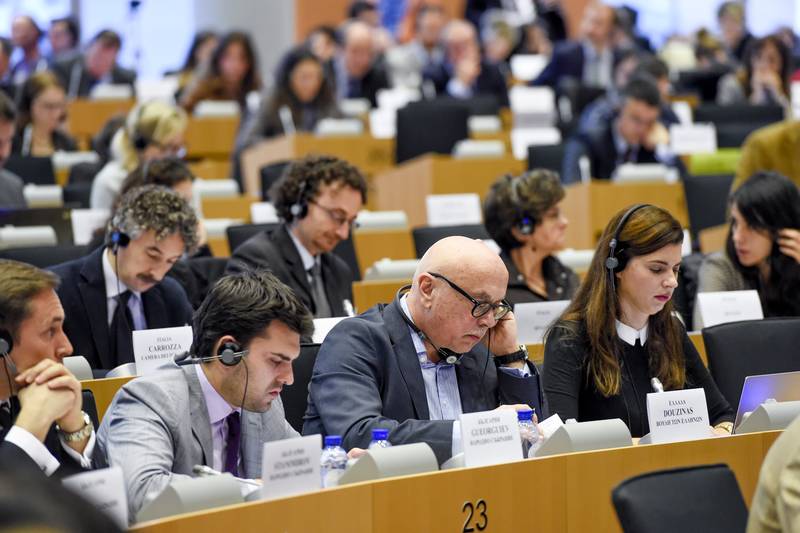 at large press conferences, streamed live in Internet, but the public in these countries receives only the statements of the government, which evaluate the reports as positive.
at large press conferences, streamed live in Internet, but the public in these countries receives only the statements of the government, which evaluate the reports as positive.
In addition, the EC should conduct presentations for the reports in the candidate states themselves, at the highest levels, in their parliaments, in key cities, among the public, in universities. The EU must be much more present in these states. Member states need to be more active as well. The initiative for Bosnia and Herzegovina, the Berlin process, the process of normalisation between Serbia and Kosovo, and also the mediation in Macedonia, show that the weight of member states is of key importance to ensuring progress. Most importantly the Union needs to demonstrate that it is capable of dealing with its own, when they show symptoms of return to corrupt practises. So, the EU needs to come out with a more comprehensive strategy in which to ask the important questions and offer solutions to members as well as to candidates. This is the only way to re-establish trust in the enlargement policy.
Translated by Stanimir Stoev
 Bakir Izetbegovic, Andrej Plenkovic | © Council of the EU
Bakir Izetbegovic, Andrej Plenkovic | © Council of the EU Aleksandar Vucic, Recep Tayyip Erdogan | © Serbian Presidency
Aleksandar Vucic, Recep Tayyip Erdogan | © Serbian Presidency Jean-Claude Juncker, Zoran Zaev | © European Commission
Jean-Claude Juncker, Zoran Zaev | © European Commission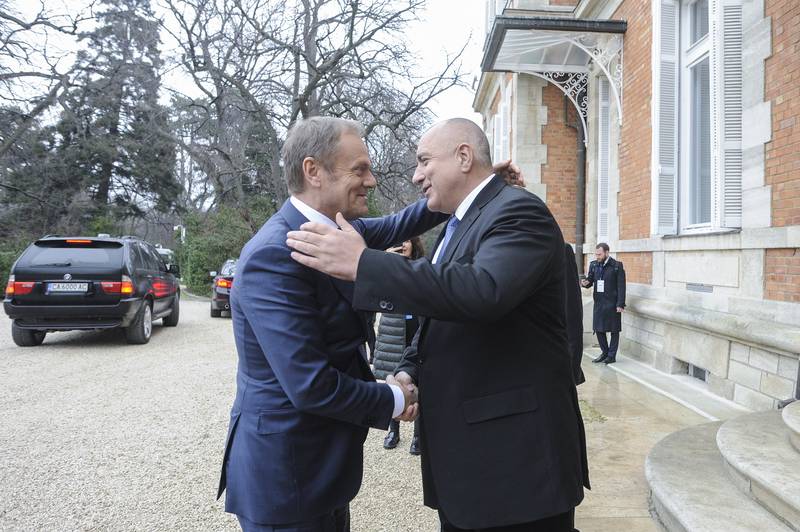 Donald Tusk, Boyko Borissov | © Council of the EU
Donald Tusk, Boyko Borissov | © Council of the EU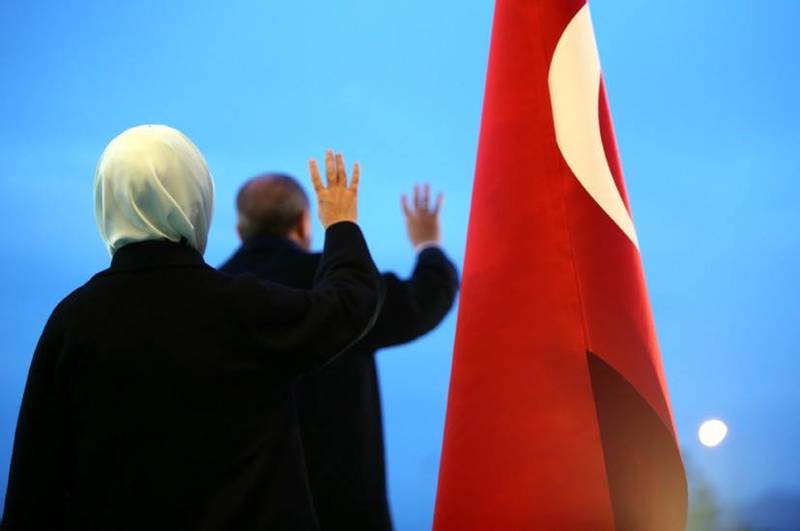 | © Turkey Presidency
| © Turkey Presidency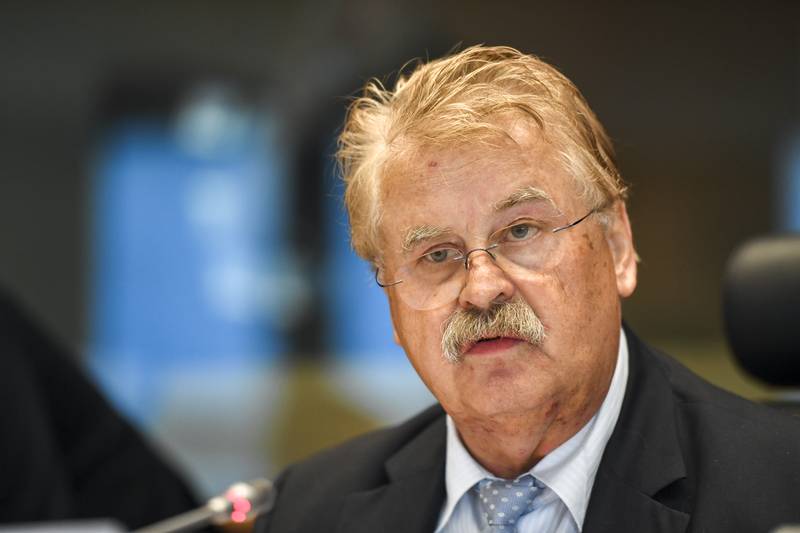 Elmar Brok | © European Parliament
Elmar Brok | © European Parliament